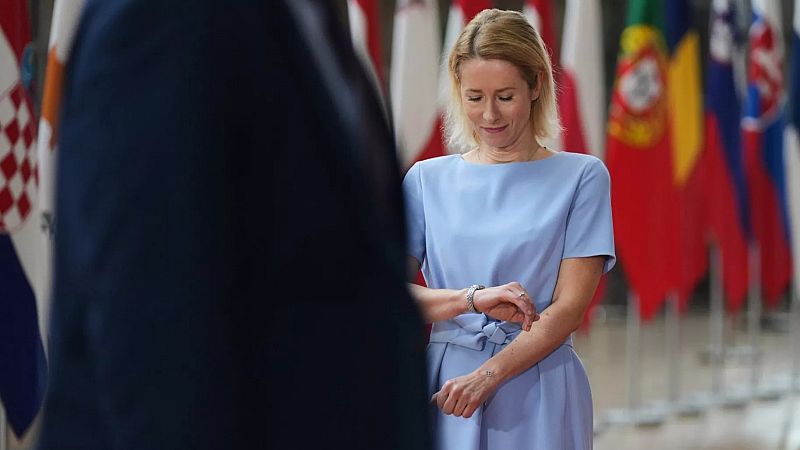
The EU’s foreign policy chief will present member states with five options in response to Israel’s breach of the EU-Israel Association Agreement during a meeting next week, several EU sources familiar with the issue have told Euronews.
The EU found recently that Israel is in breach of the human rights clause of its association agreement due to violations in Gaza and the West Bank.
The sources told Euronews that the EU's top diplomat would submit her options to member states on Wednesday ahead of a Foreign Affairs Council the following week.
The options will include the full or partial suspension of the Association Agreement, sanctions on individuals such as members of the Israeli government, military or extremist settlers, trade measures, an arms embargo, or a suspension of scientific cooperation such as Horizon Europe Research and Innovation programme.
However, the sources acknowledged that with member states at odds over the issue, it is unlikely that there will be agreement on any of the five options.
Depending on the course of action, EU rules oblige countries to agree unanimously or through qualified majority voting (QMV).
The EU agreed to review its association agreement with Israel in May after the country's military offensive in Gaza and the West Bank, as well as its blocking of food, fuel, water and basic medical supplies to the besieged population.
But since Tel Aviv launched strikes against Iran last month, and in the face of a potential ceasefire in Gaza, there is even less appetite in Europe to take any action against Israel.
Motion to prove 'impossible', sources say
Despite the eight-page review listing Israel’s human rights violations, the 27 European leaders agreed at their Council summit last week to only “continue discussions ... taking into account the evolution of the situation on the ground.”
A full suspension of the Association Agreement would be impossible as it would require unanimity, and many countries, including the Czech Republic, Germany and Hungary, oppose the idea.
Diplomats also doubt that the European Commission, which has complete competence over trade, would agree to a partial suspension of the trade elements of the agreement. Such a suspension would require a qualified majority vote, and if one or several large countries are against the decision, the vote fails.
Currently, Germany is the most significant EU country selling arms to Israel. Most countries have reduced or officially ended arms sales to Israel.
However, a formal arms embargo is unlikely to pass as Germany, alongside Hungary, Austria and Czechia, and potentially others such as Italy, would not support it.
Sanctions against Israeli individuals require unanimous support, and several sources confirm this to be an "impossible" motion due to the member states' positions.
Suspending Israel’s membership of Horizon Europe’s research programme only requires a qualified majority, but sources from member states admit there is currently “no momentum” within the EU to act against Israel.
“To cause such suffering to the civilian population, as has increasingly been the case in recent days, can no longer be justified by the fight against Hamas terrorism,” German Chancellor Friedrich Merz has said criticising the Israeli action.
According to several EU officials who spoke to Euronews on condition of anonymity, however, the German government is now fully supportive of Tel Aviv.
An EU official from a member state which opposes taking action said they would consider "measures that can improve the situation on the ground – we don't feel these [options] would help to make things better", the official said.
Commissioners say no to trade measures
Meanwhile, the European Commission – as opposed to the member states - has full competence over trade, so any trade sanctions would have to be decided by the Commission.
Euronews can also reveal that in a recent top-secret meeting of the college of 27 Commissioners, including President Von der Leyen, EU commissioners refused to support trade measures against Israel.
A source close to Kallas told Euronews her ambition is to "'stop the killing and get the food, medicine and aid into Gaza – she doesn't care how it's done."
Last week, she dispatched Christophe Bigot, the EU's special representative (EUSR) for the Middle East peace process, to Israel and the Palestinian Territories to examine the humanitarian crisis in Gaza and the West Bank.
EU officials are also considering ongoing talks between the Trump administration and Israeli Prime Minister Benjamin Netanyahu to initiate a ceasefire, and whether this may influence decisions at the EU level.
The UK, Australia, Canada, New Zealand and Norway last month sanctioned Israeli ministers Itamar Ben Gvir and Bezalel Smotrich for "incitements of violence against Palestinian communities".







